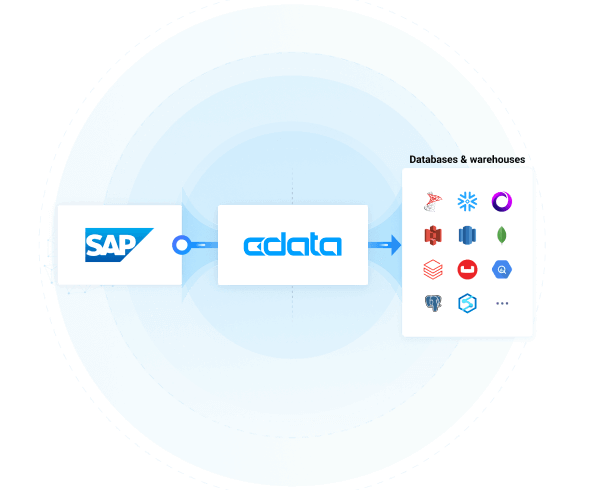How Data Drives Finance and Accounting Collaboration

Stop using stale data to make budget decisions. Too often, organizations are looking at out-of-date data to craft vital budget reports and analyze the financial health of their business. It comes as no surprise then, that financial leaders are looking to accelerate decisions with fresher data as they embrace digital operations.
Financial analysts and accountants struggle to work together to turn recorded financial activities into actionable financial plans. Among the biggest culprits: Leadership must rely on finance and accounting teams to gather and share information, exposing bottlenecks as they manually gather data, confirm its accuracy, and remove irrelevant or sensitive details for reporting.
In this article, we’ll discuss how democratizing data can improve collaboration between finance and accounting teams, allowing them to quickly provide leadership with the most current and relevant picture of your company’s finances.
Benefits of data analytics in finance and accounting
Accurate and timely data is critical for making informed decisions that affect the entire organization:
Evaluate overall performance
Fresh, accurate financial data bolsters decision-making when measured against historical data. Combining sales data with human resources data, for example, can measure the performance of your sales team to ensure that your hiring plan is in line with projected profits.
Assess and mitigate risk
As organizations become more dependent on data from all aspects of the business, complexity increases. Timely data analytics can identify potential financial risks and prioritize them for action.
Identify behavior trends
Understanding customer trends helps organizations stay on top of changes in spending and behavior to remain competitive and improve customer experience and loyalty. Accurate accounting and financial data analytics ensure that businesses act with intention instead of simply reacting.
Predict potential outcomes
Robust data analytics can offer predictive insights into the potential financial consequences of specific actions, so organizations can avoid problem spots or take advantage of early opportunities. Market patterns, pricing, operational changes, and more can be evaluated in “what if?” scenarios.
Plan for growth
Solid financial and accounting data analytics can provide a roadmap to growth. Organizations can create strategies for expansion into new markets by employing analytics built on accurate, prevailing data.
Streamlined accounting
Financial analysts, or financial planning & analysis (FP&A) teams, are charged with planning and managing a company’s cash flow — but accountants put these plans into action.
Financial forecasts are often formed from assumptions using outdated data. If the accounting team doesn’t receive accurate forecasts regularly, they risk approving expenses from a limited cash flow or blocking business-driving purchases despite having unforeseen headroom in the budget.
To help make better use of available funds, leadership can empower accounting with real-time access to today’s operating forecasts. Access to up-to-date numbers brings each department’s budget closer to reality by limiting overspending and avoiding overallocated budgets.
If accountants can use live financial forecasts to collaboratively reallocate budgets, departments can quickly determine the funds available and justify their expenses where they’re needed most.
Robust financial planning
On the other side of the equation, finance teams need accounting information to inform their planning processes. Accounting supplies the recorded financial activities for finance teams to reveal ways to reduce risk, capitalize on opportunities, forecast trends, and decide which strategies might best support growth.
Budgeting is often bottlenecked, however, when finance teams need to pull together historical accounting data, as well as input from several siloed operating units. Budgets can take most businesses anywhere from 4 to upwards of 12 weeks to develop. If accounting activities around tasks like expense reviews and payment processes are delayed, financial analysts are inevitably forced to work with stale numbers.
Rather than leaving their organization to react to a 3-month-old snapshot, finance teams should have the ability to provide an accurate, up-to-date budget report whenever it’s needed. With real-time data feeding directly into their preferred analytics and business intelligence tools, financial analysts could Consider how analysts could:
- Learn about and act on spending and revenue trends by continuously feeding fresh data into a predictive analytics platform.
- Save time and resources by automating routine reports that occur monthly, quarterly, and annually by enabling one-click live reporting from an analyst’s preferred analytics platform.
As financial analysts make the move toward real-time reporting, dynamic budget forecasts allow accountants to proactively adapt and automate expense approval policies.
Ultimately, real-time data connectivity supports interdepartmental collaboration by enabling finance and accounting to create and act on accurate budgets, predict financial roadblocks, and promote the financial health of the organization.
Enabling finance and accounting collaboration with CData
When relevant, reliable real-time information is accessible at the line-of-business level, interdepartmental collaboration becomes easy.
Luckily, your finance and accounting teams have all the information necessary to keep your company’s finances healthy – they simply need the ability to share that information collaboratively. With modern real-time data connectivity tools, your organization can shift from a reactive to a proactive financial strategy.
CData enables lines of business, like finance and accounting, to work with the data they need — when and where they need it. Learn how CData enables your organization to connect and collaborate with data with a free 30-day trial today.





